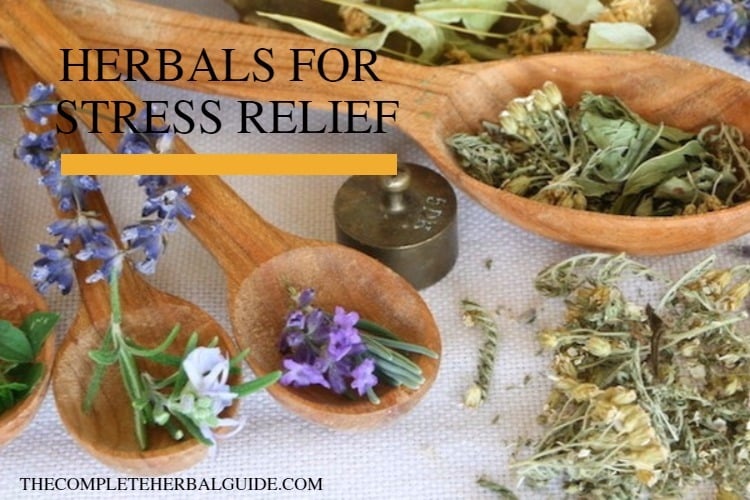
Treating Anxiety and Stress with Hypnosis and Stress Relieving Foods
Table of Contents
- How Common is Anxiety Disorders?
- Symptoms of a very stressed person?
- What could happen if people do not deal with stress properly?
- Different Kinds of Stress and Anxiety Disorders
- Ways to reduce stress and anxiety
- Can an unhealthy diet affect stress levels?
- Unhealthiest ways to deal with stress
- What is the best way to avoid stress or stop it before it happens? (The healthiest way to cope with stress)
Learn how to reduce stress, tension, and anxiety before it has serious health consequences….
Out of a deep sense of respect and honor, I feel compelled to write about an issue that affects most people in society, which unfortunately is not discussed often publically. Instead, this issue is kept underneath the table because many people are embarrassed to discuss the stress and anxiety they feel on a daily basis. Unfortunately, many times when people suffer from stress, anxiety, they often struggle with depression, and/or anger management problems. Thousands of people suffer from some form of anxiety, which is linked to stress; there is a pervading sense of unease and even fear that diminishes their quality of life. What can they do to improve their lives? Below is information about stress, anxiety and some suggestions and tips on how hypnosis can help people who suffer from stress and anxiety.
How Common is Anxiety Disorders?
Anxiety disorders are the most common mental illness in society. More than 19 million adults in America alone are affected by these debilitating illnesses each year mostly caused by stress.
Many people may not consider stress as a serious condition because everyone suffers from it, but if stress is a factor in your life and your stress level become consistently high it can lead to many serious medical conditions and illnesses including hypertension, heart attacks, and strokes.
Symptoms of a very stressed person?
Symptoms of stress and anxiety are the following:
- Tension
- Worrying all the time
- Irritability
- Frustration
- Hopelessness
What could happen if people do not deal with stress properly?
Living with stress and anxiety is more serious than you can imagine. Stress and anxiety could cause your symptoms such as:
- Poor concentration
- Fatigue
- Poor sleep
- Restless
- Irritable
- Feeling tense or on edge
- Muscle tension
Dealing with untreated stress can lead to changes in physical health such as:
- Headaches
- Jaw pain
- Dry mouth
- Chest tightness
- Poor digestion
- Irritable Bowel
- Acne
- Sexual dysfunction
- Heart palpitations
- Dark circles around your eyes
- Colds
- Flu
- Thin skin
- Begin to look older than your age
- Heart problems
- Stroke
- Body weakness
Different Kinds of Stress and Anxiety Disorders
Panic Disorder
Repeated episodes of intense fear that strike often and without warning. Physical symptoms include chest pain, heart palpitations, shortness of breath, dizziness, abdominal distress, feelings of unreality, and fear of dying.
Obsessive-Compulsive Disorder
Repeated, unwanted thoughts or compulsive behaviors that seem impossible to stop or control.
Post-Traumatic Stress Disorder
Persistent symptoms that occur after experiencing or witnessing a traumatic event such as rape or other criminal assault, war, child abuse, natural or human-caused disasters, or crashes. Nightmares, flashbacks, numbing of emotions, depression, and feeling angry, irritable, or distracted and being easily startled are common. Family members of victims can also develop this disorder.
Phobias
Two major types of phobias are social phobia and specific phobia. People with social phobia have an overwhelming and disabling fear of scrutiny, embarrassment, or humiliation in social situations, which leads to avoidance of many potentially pleasurable and meaningful activities. People with specific phobia experience extreme, disabling, and irrational fear of something that poses little or no actual danger; the fear leads to avoidance of objects or situations and can cause people to limit their lives unnecessarily.
Generalized Anxiety Disorder
Constant, exaggerated worrisome thoughts and tension about everyday routine life events and activities, lasting at least six months. Usually anticipating the worst even though there is little reason to expect it; accompanied by physical symptoms, such as fatigue, trembling, muscle tension, headache or nausea.
Ways to reduce stress and anxiety
We all know that life is full of situations that can cause stress. Stress is a part of life. Although some stress is normal, too much of it can affect your quality of life and your health. You have probably noticed that some people are able to easily manage these events, while others are easily overwhelmed. Most likely the people who deal with stress well are individuals who were taught powerful hypnotic techniques to deal with stress.
Hypnosis is a great tool for achieving deep relaxation. Hypnosis helps you to relax your body, letting stress hormones subside, and distracts your mind from unpleasant thoughts. The relaxation achieved with hypnosis can be intense. Unlike meditation, hypnotists often use hypnosis to manage stress and build self-confidence.
The people and events in our lives really do not cause our level of stress. It is how we perceive them and respond to them. This is why hypnosis is such a powerful tool because once you learn how to change your own thoughts; you can handle life more easily and your high level of stress that you are experiencing will diminish.
The reasons hypnosis is so effective:
- Diffuses physical tension and intense feelings of stress
- Helps you manage your emotional state, even in difficult situations
- Releases feelings of anger, hurt, guilt, and shame
- Improves your self-confidence, mood, and ability to focus
- Helps you accomplish more while putting less pressure on yourself
- Hypnosis helps you face uncertainty in a calm and peaceful manner
- Teaches you to experience happiness and fulfillment more consistently
Can an unhealthy diet affect stress levels?
Most definitely! Avoiding specific types of foods and eating foods known to reduce stress can help aid you in reducing the level of stress in your life. There is evidence that too much pressure is not just a mood killer. People who are under constant stress are more vulnerable to everything from colds to high blood pressure and heart disease. Although there are many ways to cope, one strategy is to eat foods that help fight stress.
Foods can fight stress in several ways. Foods, like a bowl of warm oatmeal, actually boost levels of serotonin, a calming brain chemical. Other foods can reduce levels of cortisol and adrenaline, stress hormones that take a toll on the body over time. Finally, a nutritious diet can counteract the impact of stress, by strengthening your immune system and lowering blood pressure.
Below are some foods that help reduce stress
- All carbs prompt the brain to make more serotonin. For a steady supply of this feel-good chemical, it is best to eat complex carbs, which are digested more slowly. Good choices include whole-grain breakfast cereals, bread, and pasta, as well as old-fashioned oatmeal. Complex carbs can also help you feel balanced by stabilizing blood sugar levels.
- Dieticians usually recommend steering clear of simple carbs, which include sweets and soda. However, these foods can provide short-term relief of stress-induced irritability. Simple sugars are digested quickly, leading to a spike in serotonin.
- Oranges make the list for their wealth of vitamin C. Studies suggest this vitamin can reduce levels of stress hormones while strengthening the immune system. If you have a particularly stressful event coming up, you may want to consider supplements. In one study, blood pressure and cortisol levels returned to normal more quickly when people took 3,000 milligrams of vitamin C before a stressful task.
- The magnesium in spinach helps regulate cortisol levels and tends to be depleted when we are under pressure. Too little magnesium may trigger headaches and fatigue, compounding the effects of stress. If you do not like spinach than try cooked soybeans, or a filet of salmon, also high in magnesium.
- To keep cortisol and adrenaline in check, make friends with fatty fish. Omega-3 fatty acids, found in fish like salmon and tuna, can prevent surges in stress hormones and protect against heart disease. For a steady supply, aim to eat three ounces of fatty fish at least twice a week.
Unhealthy habits that cause stress are:
Drinking Too Much Coffee: People often find themselves using coffee drinks to jump-start themselves in the morning, and a pattern of all-day coffee drinking often ensues.
Eating The Wrong Foods: Stressed individuals tend to crave foods high in fat, sugar, and salt.
Skipping Meals: Another thing overly stressed people tend to do is skip meals
Forgetting Water: Unbelievably a lack of water consumption can increase the level of stress in your life.
Crash Diets: They cause stress both mentally and physically on your body.
Blood Sugar Imbalances: When we do not eat enough food or do not eat healthy enough food (too little protein and healthy carbohydrates, too much sugar, etc.) we can experience blood sugar fluctuations. These fluctuations can lead to mood swings, fatigue, poor concentration and other negative consequences in the short term, and greater health problems like hyperglycemia in the end.
Caffeine Side Effects: Too much caffeine can lead to poor concentration and decrease in your ability to focus, sleep disturbances.
Poor Health Outcomes: Poor nutrition can also lead to lowered immunity so you are more susceptible to illnesses, both minor and major. As you can imagine, this can lead to other problems, including increased stress levels.
Unhealthiest ways to deal with stress
The unhealthiest way to deal with stress is to be in denial and try to avoid the problem. When we avoid problems, the problems only get worse and with stress, it can cause problems mentally, physically and spiritually which can lead to serious consequences.
What is the best way to avoid stress or stop it before it happens? (The healthiest way to cope with stress)
The best way to avoid stress is to go to a hypnotist like (London’s Michael Carthy) because the hypnotist will identify the situations in your life that are causing you stress. Then the hypnotist will explore the internal and external causes of your stress, and will try to identify what should change. You will develop coping mechanisms so that when stressful situations arise, you are equipped to face them in more appropriate and productive manner. You will learn to take mental breaks that relieve the tension of your daily life. The hypnotist and the patient will work together to design a stress-reduction plan that is unique to your situation and you will begin to recognize and avoid the unproductive ways you dealt with stress in the past. This energizing and healing experience will offer you a chance to live a happy, healthy, and productive life.






